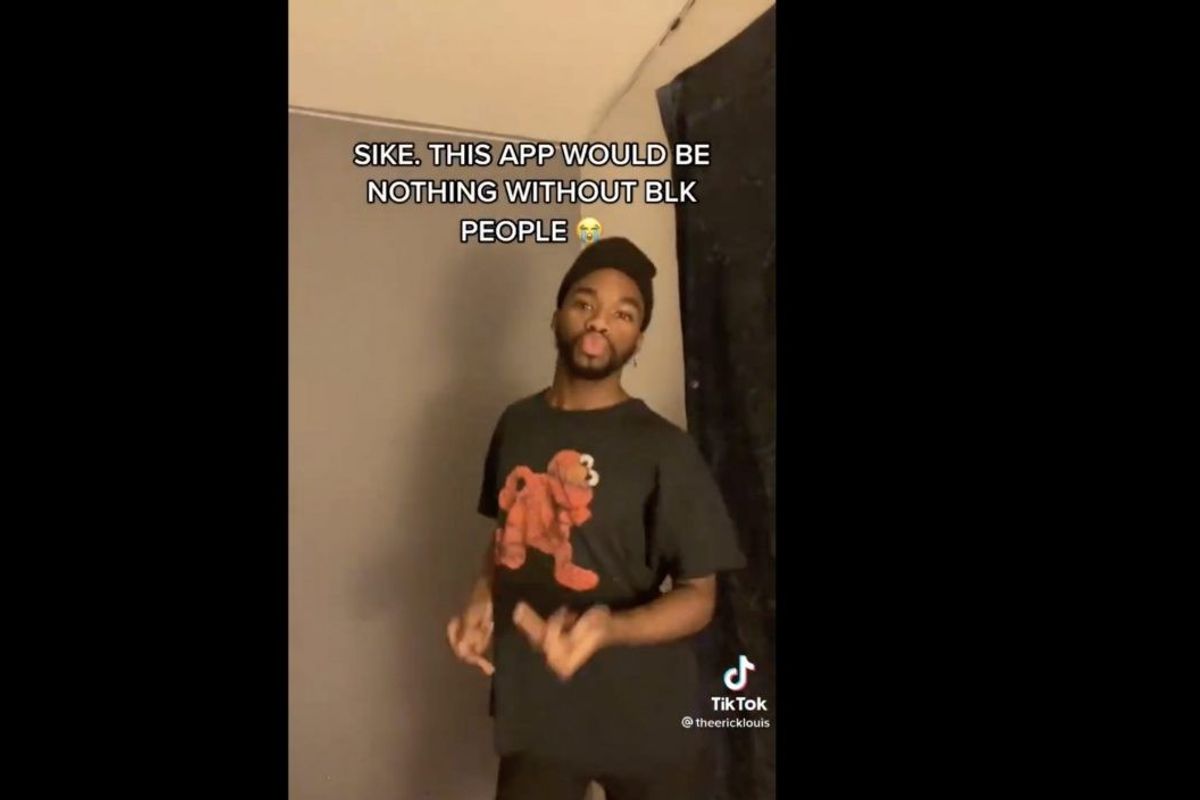
Black tiktokers
Source:Tiktok/@theericklouis

Two weeks ago, Megan thee Stallion released the video for her latest single, "Thot Shit." The track immediately hit Billboard charts, peaking at number six on the US Hot R&B/Hip-Hop Songs. However, there was just one thing missing: dozens of TikTok videos set to the songs catchy chorus. As it turns out, Black Tiktok creators are silently striking, claiming they won't make choreography to the track because previous trends have been co-opted by white creators.
Mashable's Morgan Sung noted that the track has been used in 137,600 videos as of Wednesday. Despite its 13 million Spotify streams, no particular routine has gone viral on the app yet. The reason for that, according to 20-year-old Jazmine Moore, is a silent, united protest.
"We observed over the years on TikTok that most dances on the app are originated by Black creators. And creators who aren't Black will water it down to do the bare minimum of the dance and claim it as their own," Moore said. "So when this song popped up everyone knew that someone was going to make a dance to it. But Black creators collectively agreed not to make one."
TikTok creator Capkenknuckles spoke about the strike in a video that has received over 16,000 likes.
"For all my melanated brothers and sisters of the African diaspora, we are on strike," she said. "We're not making a dance for "Thot Shit." Sorry. We're just gonna let them keep flailing."
A handful of Black creators have ignored the strike. Within 24 hours of the post, Twitter users noticed videos from white creators performing the routine, but not adding a dance credit and turning off comments.
\u201c@yazlancaster @challxn They found it gave her no credit and cut off the comments\u201d— Challan (@Challan) 1624172815
Black TikTok creators have long protested the platform's handling of their content. In 2019, TikTok admitted their moderators were trained to suppress content by users "vulnerable to cyberbullying," a designation that included disabled, fat, and queer creators. During summer 2020, the app seemed to be blocking hashtags related to George Floyd and Black Lives Matter protests. The company apologized, blaming a "technical glitch."
"People still need to acknowledge Black creators and not ignore us in any community that we partake in," Moore concluded. "To not belittle us or demonize our content for their amusement. We have each other in the long ruin and will succeed collectively as a family."